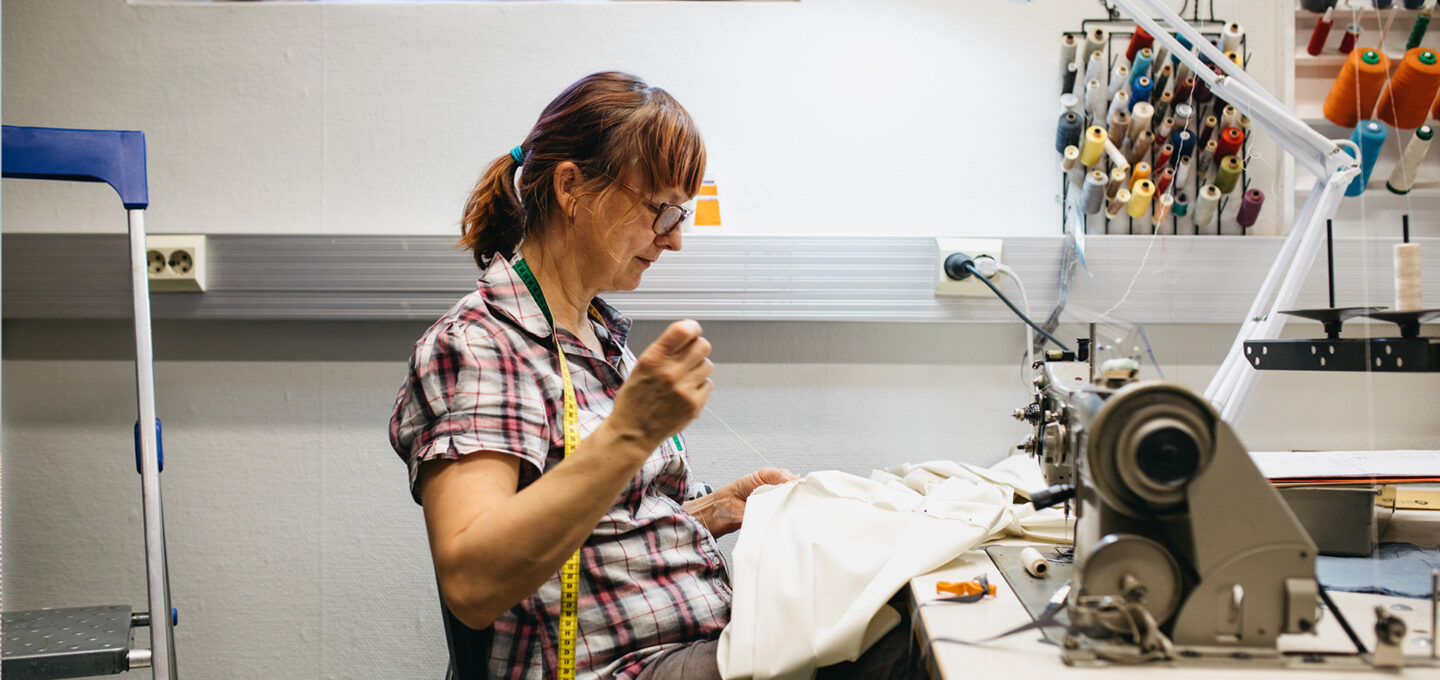Measures to manage the work ability risks of our customer companies continued to focus on enhancing the work ability expertise of their entire work community, on managerial work and on improving personnel processes that promote work ability. The impact of events intended to enhance expertise and knowledge was at an excellent level, as up to 98 per cent of those participating in such events felt that they had benefited from the information they had gained in support of their own work to promote work ability.
The ability to continue working and cope at work is essential in terms of the sustainability and prosperity of overall working life and the pension system in Finland. The update of the Occupational Safety and Health Act, which requires that special attention be paid to the ability of older workers to continue coping at work, and the new Government Programme with its reform of the contribution category model have increased the need to develop services and engage in active dialogue with customers regarding future changes and themes related to age management within workplaces. In 2023, our experts actively supported our policyholders and participated in public discourse on career management.
With the support of Veritas’ work ability surveys, our customers actively developed their work communities and exerted efforts towards supporting work ability in 2023. As many as 97 per cent of the companies in which psychosocial risks were identified based on the survey undertook actions to mitigate them. When discussing the development of working conditions with companies during the year, the themes that were particularly highlighted included those related to leadership and collaboration within the working community.
Comprehensive work ability risk management is essential, so we actively engage in co-operation with our insurance customers, providing them with everything from work ability improvements to vocational rehabilitation. Our goal is to increase awareness of the possibilities offered by vocational rehabilitation and to support our customers in utilising these possibilities to get employees back into working life and to reduce overall work ability risks.
Target 3: We support our customers in managing work ability risks
Indicator 3A: Customer evaluations of the usefulness of work ability training
98%
Actualised 2023
Target: 70%
Indicator 3B: Share of companies which have undertaken action based on the work ability survey
97%
Actualised 2023
Target: 90%
Our objective is to advise and support our customer companies in their efforts to reduce disability risks. We utilise customer surveys to regularly check the usefulness of our services.
Vocational rehabilitation facilitates continuation in working life despite deteriorating work ability
Vocational rehabilitation is our most tangible tool for combating work ability risks. The aim of vocational rehabilitation is to help the rehabilitee to return to working life and, thus, reduce the need for disability pensions. The methods used in vocational rehabilitation include, for instance, work trials, work coaching, further training, retraining and support for entrepreneurship.
We have worked collaboratively with the entire industry and our co-operative partners in order to increase awareness and the impact of vocational rehabilitation. We provide many employers with information about the purpose and possibilities of rehabilitation. In addition to advancing the impact of rehabilitation, continuous work is being done to ensure the coherence of rehabilitation decisions. We want to do our part to make sure that decisions on rehabilitation follow the same policy regardless of the pension company processing the applications. The collaborative efforts have been successful and we highly value this co-operation.
The number of applications for vocational rehabilitation increased during 2023. We issued a total of 213 (178) rehabilitation decisions (acceptances + rejections). The total number of advance decisions concerning the granted right to rehabilitation amounted to 216 (183). The number of rehabilitation decisions issued within the entire industry amounted to 6,347 (6,680) and the number of advance decisions totalled 4,649 (5 235). Unfortunately, in a certain percentage of cases, the criteria for the rehabilitation are not met. From the applications submitted to us last year, we were compelled to reject 41.8 per cent (44.9). Across the entire industry (private sector), the percentage of rejected applications amounted to 53.2 per cent (48).
Application volumes for vocational rehabilitation
| 2023 | 2022 | 2021 | |
| Rehabilitation decisions | 213 | 178 | 187 |
| Advance decisions | 216 | 183 | 212 |
| Rejected applications | 41.8% | 44.9% | 42.8% |
| Rehabilitation decisions in the earnings-related pension sector | 6347 | 6680 | 6804 |
| Advance decisions in the earnings-related pension sector | 4649 | 5235 | 6154 |
| Rejected applications in the earnings-related pension sector | 53.2% | 48% | 39% |
It is a priority for us that the supported rehabilitation is impactful. We require that the employment potential of the rehabilitation and the suitability of the intended work be assessed prior to approving the rehabilitation plan. Our insurance physicians provide us with the medical assessment of the suitability of the work task or field for the rehabilitee. In 2023, we intensified the dialogue between the pension expert making the decision and the insurance physician conducting the medical assessment. We believe that this will further reinforce our already solid decision praxis and will also reduce the time expended to make the decision.
